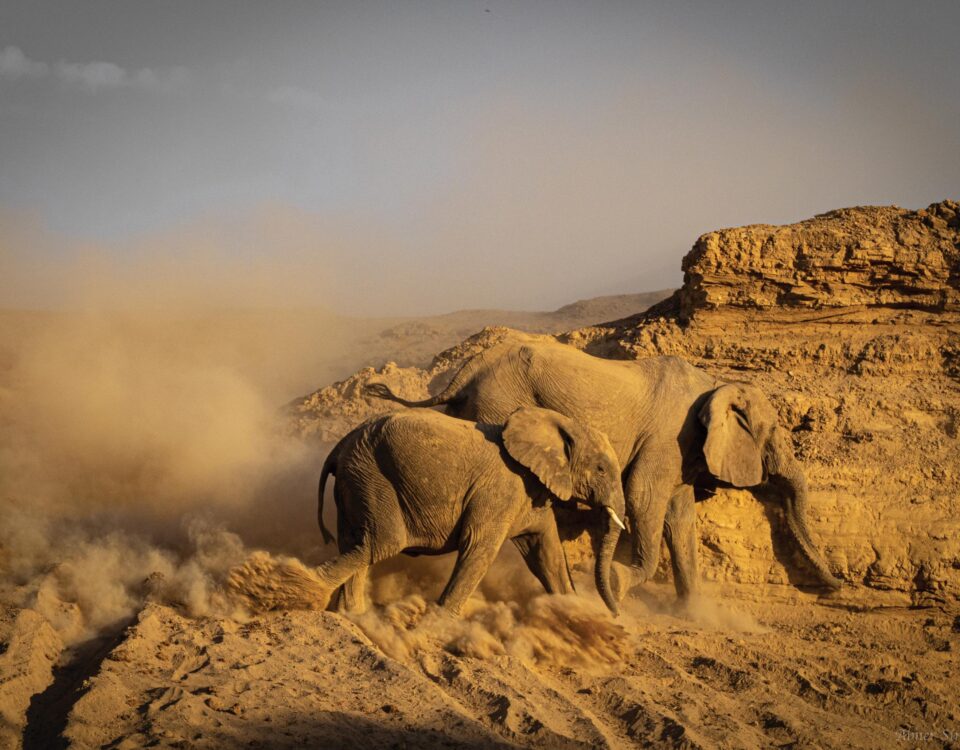The future of the Etosha National Park: Stepping into the next 100 years
July 12, 2012Birds of Prey Working Group: Birds with no boundaries
July 12, 2012By Hugh Paxton, Freelance Journalist
Trygve Cooper, Chief Warden of the Sperrgebiet, is something of a legend in Namibian conservation circles. This is hardly surprising, as he’s been working in national parks for the MET since 1978.
With retirement approaching, there is no let up of his hard work; he is currently handling one of the most challenging tasks of his career – the preparation phase for the proclamation of the Sperrgebiet, one of the world’s last great wildernesses, as a national park.
Trygve was born in Zimbabwe in 1950, grew up on a farm and, at the age of 12, moved with his family to KwaZulu-Natal. There, when still young, he attended a ten-day Wilderness Leadership course that made him decide he would rather be a conservationist than anything else.
“If you want to be a conservationist you have to be prepared to put your shoulder to the wheel.” This was just one piece of sound advice that Trygve gave me during the three days we spent together in the Sperrgebiet wilderness. As a young man Trygve did just that.
In 1969, he started as a ranger in Timbavati Private Nature Reserve in the lowveld next to Kruger National Park. There he learned the ropes – basic research, game counts, fence maintenance, patrolling, tracking, burning, et cetera – and in 1972 he moved on to work with the Natal Parks Board.
Trygve’s 27-year career in Namibia began unplanned. His first visit was to see the desert ‘and an oryx’, but within 24 hours of crossing the border he had decided to stay. “The country just grabbed me,” he remembers. His work started here in 1978 in the Skeleton Coast at Möwe Bay. From there he moved to Namutoni as a Senior Nature Conservator with responsibilities also for Halali. Next in 1984 came a Senior Warden post at Waterberg.
Wherever Trygve goes he turns things around and Waterberg was no exception. An ardent proponent of horseback patrols, he established five horse camps in Waterberg (in addition to 25 in Etosha), and although there was some poaching initially, he and his team quickly ‘got on top of it’. Horses not only increase the mobility and access possibilities of patrols, but also impact negligibly on the environment and, unlike vehicles, they don’t need spare parts or petrol, it’s cheap to maintain them and they don’t break down. Trygve stresses that horses are quiet and alert. “They are very aware,” he says. “They’ll pick up things before you do.” Other Trygve ‘footprints’ at Waterberg are the beautiful guided and self-guided hiking trails, the hides – including the Vulture Hide – and the Vista Point. He also recruited the services of Raleigh International volunteers, who now regularly visit Namibia to erect hides, clear invasive bush, build shelters and lay trails. While on the subject of trails, one of Trygve’s bolder visions for the Sperr-gebiet is laying down a 200-kilometre unguided hiking trail.
Of all the places Trygve has worked, his favourite is the Sperrgebiet. He’s a wilderness man at heart (he founded the Namibia Wilderness Asso-cia-tion) and he loves the extremes of weather and the vast unspoiled landscapes. “It’s important to know your area,” he says. “You won’t get to know it from a vehicle. You need to have an intimate relationship with the land and this can only be achieved by spending a lot of time on foot or in the saddle.”
Also important is custodianship. “Landscape and wildlife don’t have a vote. It’s up to us to defend them.” Reflecting on this statement, Trygve cites a favourite line from Aldo Leopold’s book, A Sand County Almanac. In it Leopold – a hunter, fisherman, conservationist and the world’s first professor of Game Management – wrote, “A thing is right when it tends to preserve the stability and integrity of the biotic community. It is wrong when it tends otherwise.”
Trygve is due to retire in three years’ time after a field career spanning 41 years, but before he steps down he is fully aware that the world is watching the Sperrgebiet’s process of transformation to National Park. Retirement will not mark the end of his role in conservation. Writing is on the cards, likewise consultancy work, and one thing is for sure – a man with Trygve’s philosophy and passion will never turn his back on the wild.
This article appeared in the 2007/8 edition of Conservation and the Environment in Namibia.


1 Comment
Trygve you are an absolute legend and gentleman, I met you in 1998 whilst on an expedition in Namibia on the waterberg plateau(one of the most astonishing places on earth by the way!)
You showed us the dinosaur footprint.
Thanks for the memories.